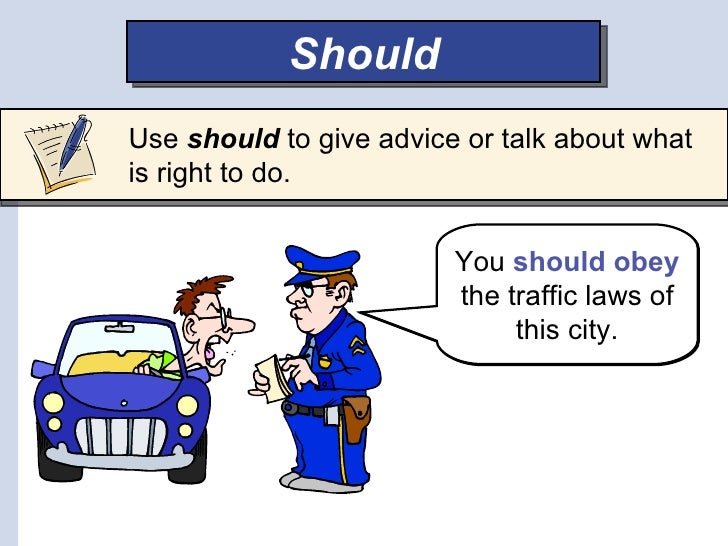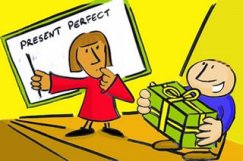I ought
to - debería / tendría que
Affirmative
·
Helen ought to be more careful.
Helen debería tener más cuidado.
Helen debería tener más cuidado.
·
I ought to stay in bed.
Yo debería quedarme en la cama.
Yo debería quedarme en la cama.
·
We ought to go together.
Deberíamos ir juntos.
Deberíamos ir juntos.
·
They ought to be here already.
Ellos ya deberían estar aquí.
Ellos ya deberían estar aquí.
·
You ought to eat more vegetables.
Deberías comer más vegetales.
Deberías comer más vegetales.
·
Tom ought to take her home.
Tom debería llevarla a casa.
Tom debería llevarla a casa.
·
It ought to work properly.
(Esto) Debería funcionar correctamente.
(Esto) Debería funcionar correctamente.
Negative
·
You ought not to drink so much.
No deberías beber tanto.
No deberías beber tanto.
·
They ought not to go camping without a torch.
Ellos no deberían ir de camping sin una linterna.
Ellos no deberían ir de camping sin una linterna.
·
George ought not to wear someone else's glasses.
George no debería usar los anteojos de otra persona.
George no debería usar los anteojos de otra persona.
Interrogative
·
Ought Rachel to be here so early?
¿Debería Rachel estar aquí tan temprano?
¿Debería Rachel estar aquí tan temprano?
·
Ought they to live there?
¿Deberían ellos vivir allí?
¿Deberían ellos vivir allí?
Ought to + have
·
You ought to have read the book for today.
Deberían haber leído el libro para hoy.
Deberían haber leído el libro para hoy.
·
They ought to have gone to the supermarket.
Ellos deberían haber ido al supermercado.
Ellos deberían haber ido al supermercado.
·
We ought to have listened to the guard.
Deberíamos haber escuchado al guardia.
Deberíamos haber escuchado al guardia.
Common Errors with "Should" and "Ought to"
Lee las frases y corrige los errores.


